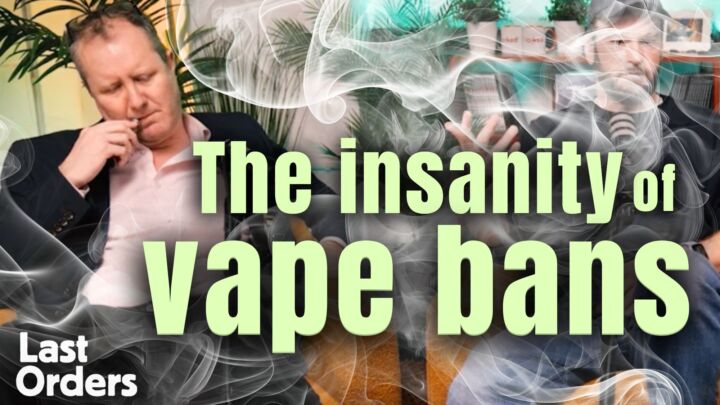The junk science of booze labelling

Want unlimited, ad-free access? Become a spiked supporter.
The news this week that the UK government’s All-Party Parliamentary Group on Alcohol Misuse wants to introduce health warnings on alcohol will come as no surprise to anyone who noticed the Alcohol Health Alliance’s 10-point temperance manifesto when it appeared online in July. The Alcohol Health Alliance sprung up in 2007 after the Smokefree Alliance ran a successful campaign to ban smoking in ‘public’ places. Since then, the group has become increasingly militant.
As ever when the state is, effectively, lobbying itself, it’s difficult to see where the politicians end and faux civil society begins. Alcohol Concern’s new CEO, Jackie Ballard – who has been on the political / third-sector gravy train for years – epitomises this. She appeared on BBC News to give her support to the APPG’s idea, but it was not the APPG’s idea. It was the Alcohol Health Alliance’s idea, of which pressure-groups like Alcohol Concern are leading members. The APPG is merely the mouthpiece of these organisations – most of which are state-funded – in parliament.
As for how we assess the policy proposal itself, we should bear two things in mind. The first is that anti-smoking campaigners denied that this day would ever come. And the second is that we already have health warnings on alcohol in Britain; they look like this:
What the APPG / Alcohol Health Alliance wants is bigger and more graphic warnings (sound familiar, smokers?). Although the Alcohol Health Alliance was rather quiet about it during its media blitz yesterday, its ‘manifesto’ explicitly states: ‘At least one third of every alcohol product label should be given over to an evidence-based health warning specified by an independent regulatory body.’
So, what would these warnings look like? The UK Faculty for Public Health has already given us an idea of what it wants:
Although, that suggestion is mild compared to what the European temperance group Eurocare wants them to look like:
And Eurocare’s is mild compared to the warnings that the Thai government wanted to introduce a few years ago:
The APPG/Alcohol Health Alliance claim that they just want to provide people with information, but public-health organisations and the Department of Health are free to offer health advice without co-opting private property. Considering the temperance lobby’s addiction to misinformation – such as the claims repeated this week that ‘alcohol is the second biggest preventable killer’ and ‘costs Britain £21 billion a year’ – it is doubtful that its health warnings would be grounded in sound science. Indeed, even the current health warnings which say that it is unsafe to drink more than two to four units of alcohol per day and that pregnant women shouldn’t drink at all are not evidence-based.
As with cigarette warnings, the intention is not to provide information (information which, in any case, is widely known) but to deter purchase. As with health warnings on cigarette packets, the aim is to demonise the product and stigmatise the user. Why else would the assorted lobby groups want the warnings to take up ‘at least a third of every product label’? Why else would they want to use such gruesome images?
We have no reason whatsoever to assume good faith from the temperance lobby. On the contrary, we know exactly what template its members are working from and we have every reason to believe that they see bigger warnings, not as an end in itself, but as a stepping stone from which they can take ‘the next logical step’.
Christopher Snowdon is director of lifestyle economics at the Institute of Economic Affairs. He is also the author of The Art of Suppression: Pleasure, Panic and Prohibition since 1800 (2011), The Spirit Level Delusion (2010) and Velvet Glove, Iron Fist: A History of Anti-Smoking (2009). This is an updated version of an article written for Christopher’s blog, Velvet Glove, Iron Fist.
You’ve hit your monthly free article limit.
Support spiked and get unlimited access.
Support spiked and get unlimited access
spiked is funded by readers like you. Only 0.1% of regular readers currently support us. If just 1% did, we could grow our team and step up the fight for free speech and democracy.
Become a spiked supporter and enjoy unlimited, ad-free access, bonus content and exclusive events – while helping to keep independent journalism alive.
Monthly support makes the biggest difference. Thank you.








Comments
Want to join the conversation?
Only spiked supporters and patrons, who donate regularly to us, can comment on our articles.